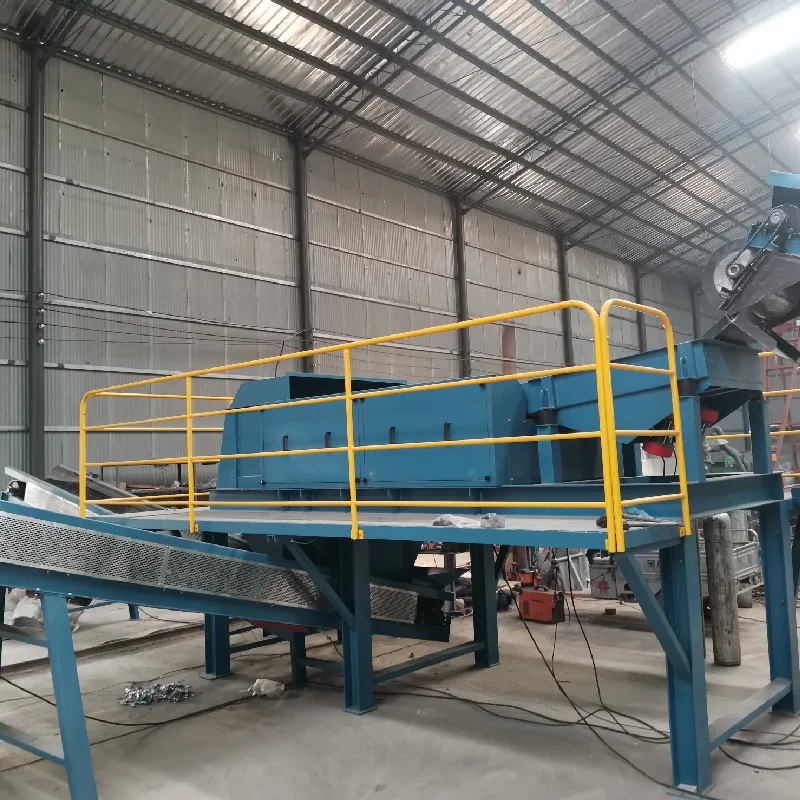

Dec . 26, 2024 08:10 Back to list
Aluminium Recycling Plant A Sustainable Solution for a Greener Future
Aluminium is one of the most versatile materials used in modern manufacturing. Its lightweight nature, resistance to corrosion, and excellent thermal and electrical conductivity make it an indispensable component in various industries, including automotive, aerospace, packaging, and construction. However, the extraction and processing of raw aluminium are energy-intensive processes that significantly impact the environment. This is where aluminium recycling plants play a crucial role in creating a sustainable future.
An aluminium recycling plant functions as a facility that collects, sorts, processes, and repurposes scrap aluminium into new products. The recycling process begins with the collection of aluminium waste, which can come from various sources such as used beverage cans, discarded packaging, automotive parts, and construction debris. Once collected, the scrap aluminium is sorted to remove non-aluminium materials, such as plastics and other metals. This step is essential to ensure the purity of the aluminium being recycled.
After sorting, the next phase is shredding. The aluminium shreds are then melted in large furnaces, requiring only about 5% of the energy needed to produce new aluminium from bauxite ore. The melting process does not diminish the quality of the aluminium, allowing it to be reused multiple times without any loss of performance. Once melted, the molten aluminium can be cast into ingots, which are then used by manufacturers to create new products.
The environmental benefits of aluminium recycling are significant. According to the Aluminium Association, recycling aluminium saves up to 95% of the energy required to create new aluminium from raw materials. This substantial reduction in energy consumption translates into lower greenhouse gas emissions, making aluminium recycling a vital practice in combating climate change. Furthermore, recycling aluminium contributes to reduced landfill waste, as used aluminium products that would otherwise be discarded are repurposed into new materials.

Moreover, aluminium recycling is economically beneficial. The recycling industry creates jobs in collection, sorting, processing, and manufacturing. It also helps stabilize prices for recycled aluminium, making it a cost-effective alternative for manufacturers. With growing awareness of sustainability, many companies are turning to recycled aluminium to meet their environmental goals, thus increasing demand for recycled materials.
However, the success of aluminium recycling plants relies heavily on public participation and awareness. Communities play an essential role in ensuring that aluminium products are recycled correctly. Public education campaigns can help inform citizens about the importance of recycling and the proper methods for disposing of aluminium waste. Additionally, collaborations between local governments, businesses, and recycling facilities can enhance collection efforts and streamline the recycling process.
In the context of global sustainability, aluminium recycling plants are more than just processing facilities; they are integral components of a circular economy. A circular economy focuses on designing products and systems that minimize waste and promote the continual use of resources. By investing in aluminium recycling plants, societies can reduce their reliance on virgin materials, conserve natural resources, and mitigate environmental impacts.
Looking ahead, the future of aluminium recycling appears promising. Technological advancements are enhancing the efficiency of recycling processes, allowing for better recovery rates and the production of higher quality recycled aluminium. Furthermore, as industries strive to adopt more sustainable practices, the demand for recycled aluminium is expected to grow, driving further investment in recycling infrastructure.
In conclusion, aluminium recycling plants are vital to fostering a sustainable and environmentally friendly future. They not only conserve energy and resources but also create economic opportunities and reduce environmental pollution. By supporting and participating in aluminium recycling initiatives, individuals and communities can contribute to a greener planet, ensuring that valuable materials are reused and recycled for generations to come.
Latest news
Troubleshooting Common Eddy Separator Problems
NewsJul.04,2025
The Role of Metal Recycling Plants in Circular Economy
NewsJul.04,2025
The Impact of Recycling Line Pickers on Waste Management Costs
NewsJul.04,2025
Safety Features Every Metal Shredder Should Have
NewsJul.04,2025
How Industrial Shredders Improve Waste Management Systems
NewsJul.04,2025
How Cable Granulators Contribute to Sustainable Recycling
NewsJul.04,2025